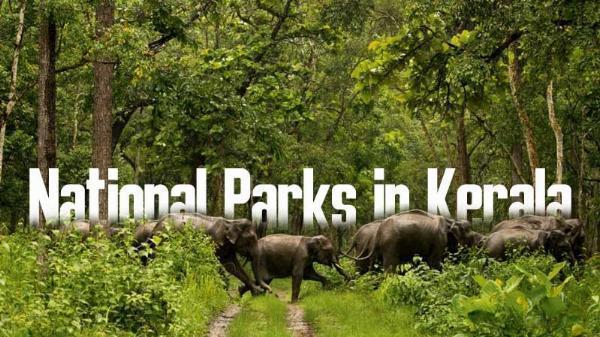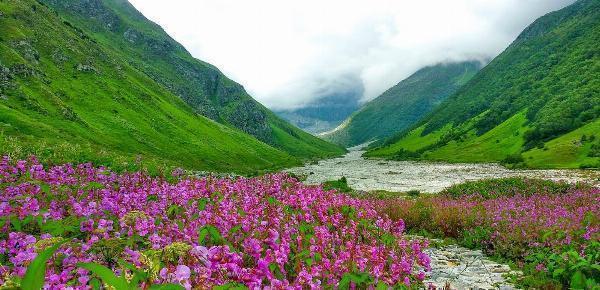Witnessing Wildlife: Exploring Kerala’s National Parks and Sanctuaries

Nestled along the southwestern coast of India, Kerala, often referred to as 'God’s Own Country', is a haven for nature enthusiasts and wildlife adventurers. Beyond its renowned backwaters and lush hill stations, Kerala’s national parks and sanctuaries offer unique windows into the diverse and abundant wildlife of the region. If you're a wildlife enthusiast, considering Kerala 5 days tour package could be your gateway to experiencing the untouched and unspoiled natural beauty of this region.
Periyar Wildlife Sanctuary: A Haven for Elephants and Tigers
One of the most famous wildlife sanctuaries in South India, Periyar Wildlife Sanctuary, situated in Thekkady, is a notable elephant and tiger reserve. Spanning across 925 sq km, it encompasses thick evergreen forests interspersed with moist deciduous habitats and grasslands, creating an ideal environment for a variety of species. The sanctuary lies around the Periyar Lake, formed by the damming of the Periyar River, and offers boat rides that provide a peaceful means to observe the animals as they come down to the water's edge.
Visitors often spot large herds of Asian elephants, and if you're particularly lucky, glimpses of the elusive Bengal tiger. Besides these flagship species, Periyar is home to wild boars, sambar, leopards, and a variety of primates. The avian life here is also rich, with over 260 species like the Malabar grey hornbill, darters, and kingfishers.
Eravikulam National Park: The Abode of Nilgiri Tahr
Situated in the high ranges of the Western Ghats, near Munnar, Eravikulam National Park is primarily known for protecting the endangered Nilgiri Tahr. The park spreads over 97 sq km and is characterized by its rolling grasslands and sholas. A visit to Eravikulam is often combined with a trip to the tea gardens of Munnar, adding a cultural twist to a wildlife expedition.
One of the highlights of this park is the Anamudi Peak, which stands as the highest peak in South India and is accessible through treks organized in the park. The flowering of Neelakurinji, which blooms every twelve years, covering the hills in a blanket of blue, is a spectacular sight not to be missed.
Wayanad Wildlife Sanctuary: A Rustic Wildlife Experience
Part of the Nilgiri Biosphere Reserve, Wayanad Wildlife Sanctuary is less commercialized compared to its counterparts but no less rich in wildlife. This sanctuary provides refuge to a variety of Indian bison, elephant, tiger, and deer. The region’s thick forests, interspersed with swamps and grasslands, provide ample opportunities for wildlife spotting and photography.
The sanctuary is also an integral part of a larger protected area network with Nagarhole and Bandipur of Karnataka and Mudumalai of Tamil Nadu. This connectivity supports a healthy genetic exchange in the wildlife population, essential for the conservation of species.
Silent Valley National Park: A Botanist’s Paradise
Silent Valley, located in the Kundali Hills of the Western Ghats, is an ecological island with a unique microclimate environment. This national park is renowned for its pristine forest, untouched by human intervention, and the rare species of flora and fauna it protects. The core of the park is a strictly no-entry zone to conserve its biodiversity.
The park is home to over 1000 species of flowering plants and a habitat for endangered animals like the Lion-tailed macaque, Malabar giant squirrel, and the Indian Bison. Bird enthusiasts will find a haven here, with numerous species of rare birds including the great Indian hornbill and the Nilgiri wood pigeon.
Kumarakom Bird Sanctuary: A Bird Watcher’s Haven
Located on the banks of the Vembanad Lake in Kottayam, Kumarakom Bird Sanctuary is a favorite destination for avian enthusiasts. The sanctuary offers a glimpse into the life of various migratory birds such as the Siberian stork, egret, darter, heron, and teal. A visit during the migratory season (November to February) transforms the sanctuary into a bustling hub of avian activity.
Boat rides in the early morning or evening hours provide the best opportunities to see the birds in their natural habitat. The surrounding area of the sanctuary is also culturally rich, with local fishermen and their traditional methods of fishing adding to the rustic charm of Kerala.
Conservation Efforts and Sustainable Tourism
Kerala’s efforts in conserving its wildlife are commendable. The state has initiated several programs aimed at preserving the habitats while ensuring the welfare of the local communities. Eco-tourism is encouraged, and many local youths are trained as guides, providing them with employment opportunities while promoting conservation education among tourists.
Conclusion
Kerala's national parks and wildlife sanctuaries offer much more than just wildlife spotting. They are gateways to understanding biodiversity and the importance of conservation. They remind us of the delicate balance between human existence and nature. For those planning a brief yet encompassing visit, exploring these sanctuaries and parks in a structured manner, like through a meticulously planned itinerary, can be both rewarding and enlightening.
Witnessing the majestic wildlife of Kerala is not just about the thrill of seeing wild animals in their natural habitat, but about understanding our place within the natural world. Each visit contributes to the local economy and helps in wildlife conservation efforts, making it a win-win for both nature and its admirers. As you plan your journey into the wild, remember that the greatest joy comes from knowing that your visit helps in sustaining these ecosystems for future generations.
Note: IndiBlogHub features both user-submitted and editorial content. We do not verify third-party contributions. Read our Disclaimer and Privacy Policyfor details.




